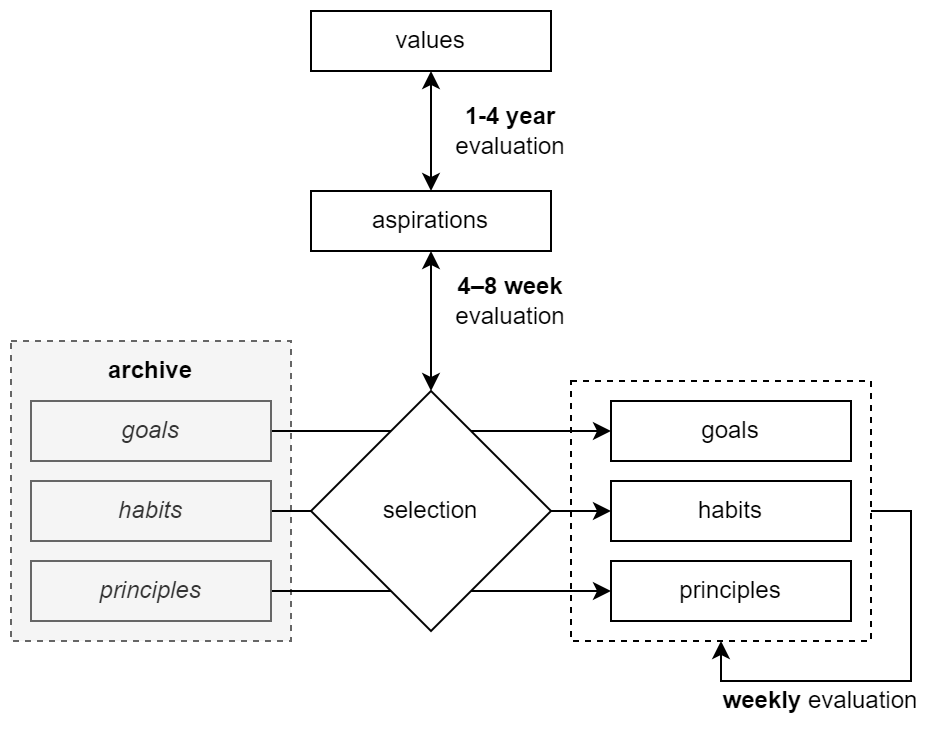After having derived a suitable period for assessing the relationship between your goals, habits and principles with your aspirations, we now have the final piece of the puzzle to create a structure for assessment cycles for an integrated life. With an ‘integrated life,’ I here refer to a life lived in line with one’s inner philosophy as established in one of my earlier articles.
Let’s start with an overview diagram:

Very abstractly, we kickstart this whole process by taking a day to develop our inner philosophy. This should contain all our (core) values and our aspirations for how we want to embody them (who we want to become). Furthermore, we have a base archive of the goals, habits and principles that we are already implementing or pursuing, and the ones we (think we) want to pursue at some point in time.
Once we have developed this initial structure, which we will do again every 1–4 years depending on how ‘solid’ you feel your foundation is, we can work on our first ‘momentum cycle.’ Here we select what goals, habits and principles to explore in the coming 4–8 weeks, focusing on 1–3 of our aspirations.
This can also be a moment to do or plan some extra research into one of our aspirations. For example, if you want to become more mindful, we can look for possible goals, habits, and principles that can help us achieve this first.
Besides focusing on the ‘what’ (what to do), we have a moment to devise a strategy on ‘how’ we will do it. How can we facilitate ourselves best to achieve our goals and maintain our habits and principles?
The latter part, the strategy, is what we will evaluate by the end of each week. What worked out and what didn’t? How can we re-strategise to be more successful in the coming week? We need to give ourselves some time to do these things properly, because we cannot know beforehand how exactly things will turn out.
I think a healthy mindset is to see it all as an experiment: you think this habit, goal or principle will help you to become (for example) healthier, and you are now trying to find out whether this is actually the case. This, as opposed to having to convince yourself you need to adhere to something simply because someone else told you that it works (and if it doesn’t you must be doing it wrong).
Every 4–8 weeks, depending on how often you needed to adapt your strategies, we will do a momentum assessment. As I introduced in this post, we should periodically evaluate whether our goals, habits, and principles are actually living up to their expected effect—the pursuit of our aspirations. This is important because in principle, the ultimate goal of the goals, habits, and principles that we define is to live up to the aspirations of who we would want to be.
We can use this moment to see whether or not we feel like we have ‘gained momentum’ on any of our aspirations, but particularly those we set out to work on before. If we made progress, that’s great! If not, we may want to reconsider the effectiveness of the goals, habits, and principles we thought would be worthwhile.
In any case, we can come back to our inner philosophy and see what aspirations to (continue to) work on next. Periodically reflecting on why we are doing things will motivate us to keep at it by igniting our intrinsic motivation, and help us to lead a more integrated life.